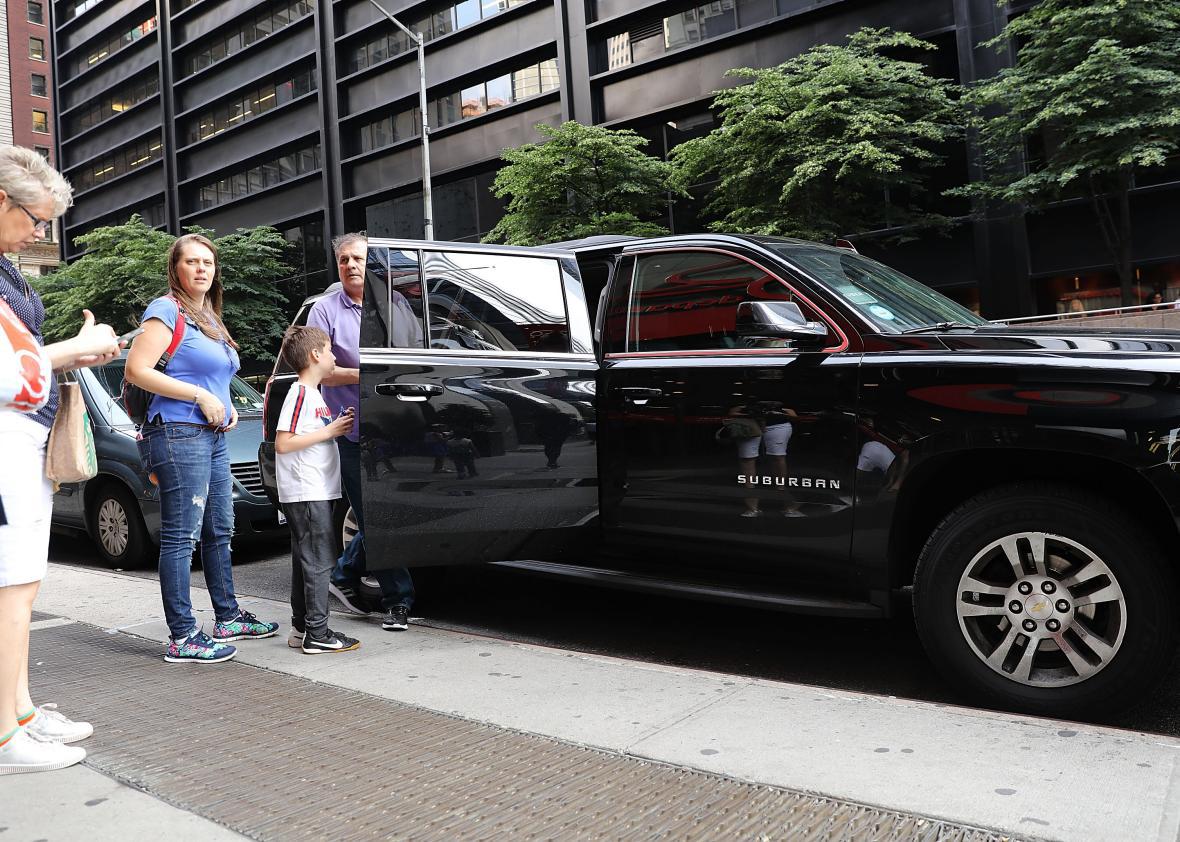In the wake of scandal, a corporate shake-up, and a federal investigation, is Uber’s decision to finally add a tipping function this July an olive branch to the company’s drivers?
Why else would the New York–based independent drivers guild have called it an “important win”? Doesn’t the policy come with other worker perks, like charges for wait time? Plus, couldn’t this newfound posture of corporate remorse pay off for Uber? Haven’t many customers bailed on Uber for Lyft in part because of the “friendly ride-share company” image that this type of small concession to employees, which Lyft has offered for years, helped create? And in that sense, is this a textbook case of corporate social responsibility—a policy that benefits workers, customers, and the bottom line?
Then again, will riders even feel good about their newfound ability to contribute to driver welfare? Isn’t tipping, as Michael Lewis famously wrote, a bit of an aristocratic conceit—“Get yourself a haircut, why don’t you?”—that we should have abandoned long ago? Weren’t we all trying to eliminate tipping from restaurants just a few years ago in the interest of paying workers a proper wage instead? Wasn’t it unfortunate that Uber, in so many ways so loathsome, was also the poster child for a company that eliminated this rotten system? And didn’t the lack of tipping help eliminate cab deserts by making every geographic area equally lucrative?
What is the social convention around tipping a cabbie these days? Is it like a restaurant, where you give 20 percent in all cases unless there was a bug in your food? What’s next, tipping the dentist?
Don’t we all agree that tips kind of suck as a way to make a living? Do tips forestall the arrival of substantive benefits for drivers like health insurance? Doesn’t the addition of tips to ride share introduce Uber to the effects of conscious and unconscious racial bias that have already been demonstrated in its rating system?
But also: Isn’t it better to be tipped than not to be tipped?
Why change now? Because this is the company’s first full week without founder Travis Kalanick, who is on a leave of absence, and was the subject of a viral video in which he argued with a driver about pay? Was Kalanick an obstinate opponent of a policy that was seen as a good PR move for both customers and drivers?
Could there be some internal corporate logic for installing a tipping button? Does it provide labor-conscious riders with an opportunity to express their frustration with bad drivers without bestowing a three-star review that could lose someone their job? What if this is a way of testing to see how much customers are willing to pay, and charging more to more generous tippers?
Speaking of bad tippers, why is the company putting a surcharge on teens, anyway? Did someone egg Arianna Huffington’s house last week?
And should we even be discussing this cosmetic change in the driver-customer-company relationship, when the business model is dependent on cheap labor made possible by treating the drivers as contractors? Aren’t we, as riders, complicit in this relationship? Does tipping assuage our guilt? Or merely transfer the responsibility for a living wage from the front office to the back seat?
